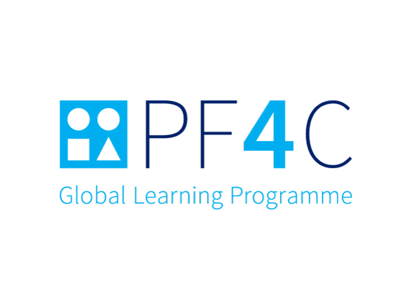Welcome to the UNICEF Global Learning Programme on
Public Finance for Children!
This course focuses on UNICEF’s approach to public finance, and how UNICEF staff can influence and support the mobilization, allocation, and use of public financial resources to improve the adequacy, efficiency, and equity of public investments in children, and thus, ensure the right of every child to essential social services.
Domestic revenues far exceed overseas development assistance (ODA) even in most lower-income and fragile states. Supporting governments to improve the amount and quality of their spending on investments and services for children is a critical mechanism to improve outcomes for children.
Partnering with governments on public financing for children is a core part of UNICEF’s mandate. It
forms the mechanism through which UNICEF supports governments’ commitment to invest in child
rights ‘to the maximum extent of available resources’, as set out in Article 4 of the Convention on
the Rights of the Child (CRC) and the United Nations Committee on the Rights of the Child General
Comment No. 19 on Public Budgeting for the Realization of Children’s Rights.
This course will equip you with knowledge and tools to support efforts to improve investments in children and apply public financial insights and perspectives to your planning, advocacy and programming.
The material in this course is relevant across the different sectors, regions, and country contexts where UNICEF works. This is illustrated by a broad range of examples and case studies in the course material, as well as links to further resources.
Learning objectives
At the end of this course, you will be able to:
1. Interpret key financing concepts heard or read in policy or political discourses or processes.
2. Identify PFM-related barriers to child results in a sector or cross- sectorally.
3. Understand the link between the realization of child rights and optimal use of public resources.
4. Engage effectively in budget processes through well timed and evidence informed public finance interventions as well as mapping of key actors and partners.
5. Craft high-level communication messages to raise awareness or alerts on issues with clear- cut or potentially significant implications for children, using expenditure analysis tools.
6. Draft terms of reference to further investigate PFM problems and identify solutions.
Audience
This course is recommended to UNICEF programme and management staff in country offices, regional offices and headquarters, across sectors such as Education, Health, Social Protection and Social Policy, Nutrition, WASH, ECD, Child Protection, and HIV/AIDS, as well as other cross-cutting policy areas. The course is also recommended to staff with an interest in understanding government finance, including staff working in operations, supply, data analysis and evaluation.
UNICEF staff with an interest in public finance for nutrition can undertake further focused training through the self-paced AGORA course on PF4C-Nutrition Course.
Length
This course is composed of 11 modules with an average dedicated time for completion of 3 to 4 hours per module.
Methodology
This distance learning programme can be taken anywhere anytime through computer and mobile devices. Learning resources include reading materials, videos, interactive activities, and many more. At the end of each module, you will be asked to pass an assessment test and provide feedback.
Structure
This course is composed of eleven modules:
- Course context and Roadmap
- Fiscal Space
- PFM Systems and The Budget Cycle
- From Policy to Budget - Strategic Planning and Budget Formulation
- Budget Execution and Reporting
- The Politics of the Budget
- Fiscal Decentralisation and financing at sub-national level
- Financing for Social Sectors
- Public Expenditure Analysis
- Value for Money Analysis
- Equity in Public Finance
Certificate
Participants will be awarded a course certificate upon successful completion of all 11 assessment tests and provision of both module and course feedback.
Contact details
For quick support ALL UNICEF LEARNERS should submit requests through the Service Gateway portal https://unicef.service-now.com/cc?id=home
For questions related to the course material, please contact Buthaina Al-Iryani ( baliryani@unicef.org )
